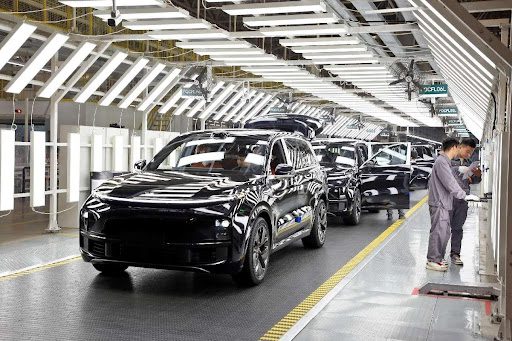The Chinese New Energy Vehicle (NEV) sector is rapidly accelerating its global expansion, marking a significant stride in the international electric vehicle landscape.
In 2023, China experienced remarkable growth in the production and sales of NEV, consolidating its global leadership in the electric mobility sector.
A report by People’s Daily revealed that both the production and sales of NEVs in China surpassed 9.58 million and 9.49 million units, respectively, marking significant increases of 35.8% and 37.9% compared to 2022 figures.
The export of NEVs from China also saw a substantial surge of 77.6%, exceeding 1.2 million units. These achievements underscore the strength and capability of China’s manufacturing industry.
Chinese automakers continued their innovation in 2023, with Changan testing a model capable of adding 200km of range in a 10-minute, 800V high-voltage ultra-fast charge using silicon carbide technology. Chinese NEVs have made strides in charging, drive systems, connectivity, and assisted driving features in recent years.
To meet rising global demand, major Chinese automakers decisively expanded their overseas production capacity in 2023. NEV leader BYD announced plans for a new Hungarian plant in December and a $633M, three-factory complex launching production in Brazil this year.
Other manufacturers like Changan, SAIC, and NETA revealed billion-dollar plans for factories in Thailand. SAIC maintained its position as the top-selling brand overseas, reaching over 1.2 million vehicle sales in 2023.
Beyond manufacturing expansion, Chinese EV startups attracted significant international investments, reflecting confidence in their technologies. Volkswagen invested $700M for a 5% stake in Xpeng, an electric vehicle startup.
Audi signed an MoU with SAIC for joint development of new EVs, and Stellantis committed $1.5B to become a strategic shareholder of Leapmotor, aiming for 2024 sales of Leapmotor’s high-tech budget EVs in Europe, according to WAM.


